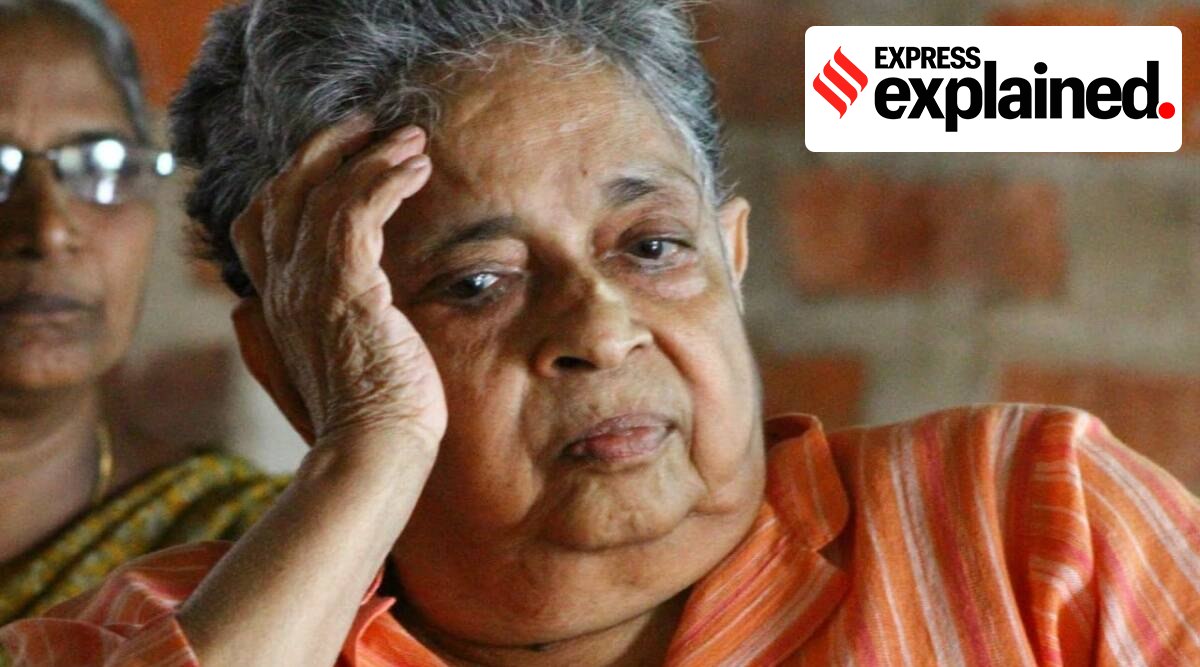The landmark Mary Roy case in SC, which gave Syrian Christian women equal right to property
Mary Roy, the mother of author-activist Arundhati Roy, has passed away at age 89
 Mary Roy mounted a legal challenge to the law after she was asked to leave her father's Ooty cottage that she had returned to, along with her two children, after her divorce. (File)
Mary Roy mounted a legal challenge to the law after she was asked to leave her father's Ooty cottage that she had returned to, along with her two children, after her divorce. (File)
Educator and women’s rights activist Mary Roy, who passed away on Thursday (September 1), was best known for the “Mary Roy” case, the prolonged legal battle that ensured equal property rights for women from Kerala’s Syrian Christian families.
Roy, who died in Kottayam at the age of 89, was the mother of Man Booker Prize-winning author Arundhati Roy.
1983 petition under Article 32
Denied equal rights to her deceased father’s property, Mary Roy sued her brother, George Isaac, marking the beginning of a case that is seen as a milestone in ensuring gender justice in India.
The key question before the Supreme Court was whether, in territories that once formed part of the erstwhile Travancore state, matters of intestate (a person who has died without leaving a will) succession to the property of Indian Christian community members were governed by the Travancore Christian Succession Act 1917, or by the Indian Succession Act, 1925.
Travancore Succession Act
Under the Travancore Succession Act, women belonging to the Syrian Christian community had no right to inherit property.
The Act, stated that “a daughter shall not be entitled to succeed to the property of the intestate in the same share as the son but she will be entitled to one-fourth the value of the share of the son or Rs 5,000 whichever is less.” Also, under the Act, even this amount was to be denied to the woman “if Streedhanom was provided or promised to her (daughter)”. In the case of a widow, the Act only provided for maintenance that was “terminable at death or on remarriage”.
Mary Roy’s plea
The petition filed before the apex court said that the Travancore Succession Act violated Article 14 of the Constitution by discriminating on the basis of gender.
Mary Roy mounted a legal challenge to the law after she was asked to leave her father’s Ooty cottage that she had returned to, along with her two children, after her divorce.
Roy was represented before the Supreme Court by lawyers Indira Jaising and Kamini Jaiswal, who essentially argued that the relevant provisions of the Travancore Succession Act discriminate between man and woman on the basis of gender and are, therefore, in violation of Articles 14 and 15 of the Constitution, and that the Act was repugnant to Indian Succession Act 1925, which does not discriminate on the grounds of gender.
Verdict in the case
The Supreme Court in its 1986 judgment upheld the supremacy of the Indian Succession Act, 1925. A Bench comprising Chief Justice of India P N Bhagwati and Justice R S Pathak ruled that in case the deceased parent has not left a will, the succession will be decided as per the Indian Succession Act, 1925 which will also apply to the Indian Christian Community in the erstwhile state of Travancore.
The verdict put an end to the socially-sanctioned practice in Syrian Christian families to deny women their rightful share in inheritance.
After the verdict
But even after the SC ruling, the ordeal did not come to an end for Mary Roy.
She was unable to get her claim executed till the time her mother, who had lifelong rights over family property, was alive. After her mother’s death, she approached the Kottayam sub-court for a final decree. It was in 2009 that the protracted legal battle came to an end and the local court finally issued a final execution decree in her favour.
- 01
- 02
- 03
- 04
- 05





































